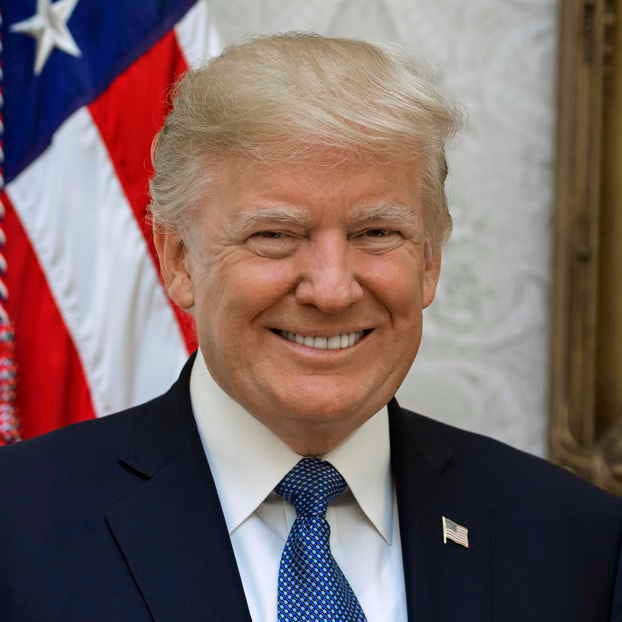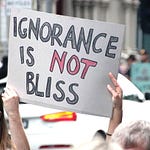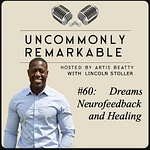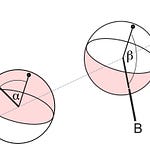“Groupthink refers to a deterioration of mental efficiency, reality testing,
and moral judgment that results from in-group pressures.”
— Irving Janis, psychologist
The Different Ways We Grow Up
The famous aphorism “ontogeny recapitulates phylogeny” is suggestive and sounds smart, but isn’t true. The expression means the individual’s development repeats the stages of the species as it evolved from a rudimentary to its present-day form. The development of the human fetus does display some forms of early mammals, but these are only suggestive.
Sociogeny is the development of social phenomena, such as common behavior and social patterns. In non-humans, we identify these as instinctive behaviors because we cannot identify them as reasoned thoughts. In humans, we take an entirely different approach because we believe our thoughts are free and our patterns chosen. This is a mistake.
Human social behavior develops with as little thought as it does for other animals, and other animals are probably as thoughtful as humans in this regard. Understand that most of what we think is not under our control, but is the result of our emotional reactions and underlying triggers. Fear and hunger motivate most of our actions. The “enlightened human intellect” is largely a self-gratifying emotional construction.
It’s increasingly appreciated that other animals have emotions and cognitive variety. This is discerned even in insects. Their collective behaviors are not genetic, but are learned from interactions with their environments and from each other. We see other animals as displaying uniform behaviors and think they have no individuality. We see ourselves as apparent individuals and overlook our similar thoughts and repetitive behaviors.
While we are not as like-minded as we believe other animals to be, we are like-minded. This is partly because we know little more than the gross behaviors of other animals. There are some people who specialize in animal behavior and recognize individual variety, but we generally ignore what this tells us about ourselves. Few domesticated animals have the freedom to express their individuality. We are oblivious to the behavioral variety in front of us and impose an anthropocentric bias on all that we see.
For example, we hardly know if other animals recognize each other, or if they address each other as individuals. This is an amazing blindness on our part. Most people would say we don’t see individuality in other species because it doesn’t exist, but it does. We see it in wasps and cetaceans.
An increasing number of other species are being recognized as employing language that identifies individuals. This has been going on forever, and we cannot see it. The reason we don’t recognize individuality in other species is because we don’t understand individuality in our own species. We think people are distinguished according to what they say when, in truth, what people say rarely reflects what they feel or who they are.
People act according to what they feel, not according to what they say. We have a poor understanding of other people’s feelings. I know this from my experience dealing with many types of people and from my clients. My clients are trying hardest to understand others and themselves, and despite this, they make uncertain progress.
The amazing thing is that we see ourselves as individual, rational agents, thinkers, actors, and personalities when we are not. Much of what we see in ourselves and in others is a template of shared attitudes. We don’t recognize the collective attitudes and emotions that drive us. We are poor at recognizing the thoughts that are not our own.
This question of independent thought is not the same as the question of free will. Humans display little independent thought despite our illusion of independence. If we could hear what goes on in each other’s minds, we would be shocked at the degree to which we share the same thoughts.
Social Structure and Individuality
The problem lies in our preconceptions, our limited recollection, and our fears. We don’t understand our situation and we feel insecure. As long as we live in a fearful society, we will continue to rely on fabricated stories, simple boundaries, and shallow emotions for protection.
We see this in the 2024 US election where weak attempts at rational decision making are swamped by crude, immature emotions. The election to determine the world’s future is essentially a child’s tantrum or a schoolyard riot.
Children are known to overlook the long term. As adults, we pride ourselves on our ability to manage both the long and short term. This defines maturity more than anything else. We base our actions on understanding what we see and seeing things in detail.
Our understanding of each other is based on subtle cues. In addition to what we say, these include facial expressions, body movements, cadence, and inflections of speech. Using some metric, psychology researchers have estimated that 95% of our communication is nondeclarative, lying outside literal meaning and within the domain of preconception and emotion.
This “extra 95%” of communication is not what we intend to say. It’s not what we or anyone is talking about. The information in this 95% comprises social memes, prejudices, biases, preconceptions, authoritarian attitudes, deprecation, flattery, manipulation, insinuation, innuendo, and expectations.
We’re hardly aware of our predominant messaging, but we’re completely vulnerable to it. These messages change our feelings, attitudes, and orientations through mechanisms that operate below our conscious intentions. This communication controls 95% of our behavior without our realizing it. We think we have free will because we’re unaware that 95% of our thoughts are not our own.
I understand this to apply to everyone, not only those people who we fancy as unintellectual, fashion conscious, trend followers. We are all responding to social cues. The alternative is to be aware of these messages and interrupt our instinctive responses.
Societies Behave Like Children
Our responses to events are habitual, neurally rooted, and reflexive. They are not conscious or intentional, and they are not under our control. This is why I direct all my clients to neural retraining.
You cannot see your neural habits. You think they are defining elements of your personality, aspects that were either imprinted by events or defined by genetics. There is truth to this, but what’s false is the presumption that you can’t change what you don’t understand.
Many social movements reflect trends of collective thought. Political history is a catalog of group psychosis. We might believe things evolved rationally between these episodes, but this is false. These episodes of group psychosis are the predominant form of social evolution. The quiet periods between these episodes of conflicting group-think are periods of quiescence where little thinking is being done, few changes occur, and inadequacy becomes apparent. Just as with species, social thought evolves through stages of punctuated equilibrium.
The upcoming US election demonstrates the contest between thought and reactivity. The two options are, on one side, a reasoned and normalized consideration of national interests and social conflicts. On the other side, an angry, emotionally destructive approach without a measurable goal or program. This is similar to the German fascists, French Jacobins, Russian Bolsheviks, and Chinese Communists. In Pol Pot's Cambodian revolution, all thinking people were killed. In the USA the civilized option is to vote them out of office.
In Robert Paxton’s (2001) influential analysis of the French Vichy government during the German occupation of France during World War II, he identifies unspecified violent populism as the defining feature of fascism. Fascism, he says, has no program or goal. It’s a flood of dissatisfaction, guided by and diverted for the benefit of those who control it.
This disjunction between collaborative thought and divisive action is socially pervasive. This makes clear that major changes will not come from the ineffective process of political compromise, but from chaos and whatever follows.
When the populace cannot imagine a path to progress, they will act to destroy the boundaries that contain them. This is the same approach a child takes in an unwinnable position. The illusion held by both the child and society is that the ensuing chaos will bring more freedom.
But the child does not gain autonomy; they are diverted. The enduring structures increase their advantage. Political change, like corporate change, is not driven by social need. It’s driven by power or profit, and the search for new opportunities.
How Societies Might Grow Up
No modern society has grown up. The grown up societies are indigenous, and they are barely surviving in the tumult of modern change. Our modern societies, along with our geopolitics, are in early childhood stages.
Groups try to accomplish what societies cannot by creating communities, parties, movements, and religions. They fail in new territory, so they try to limit change. I see the creation of these factions as a process of random selection. Successful combinations are short-lived.
If the development of individuals models the evolution of society, then we’re either waiting for a definitive learning experience, or guidance. For a learning experience to reorient a culture, it would have to be understood by a majority. This would require a population that was thoughtful and farsighted. It is not enough to be one or the other because thought stabilizes us while being farsighted prepares us for change.
Society’s thoughtfulness is established by experience or by schooling. Experience is only useful when it creates contrast and reveals consequences. Schooling is only useful when it stimulates thought and creative experience. The drift toward increasing chaos reflects the failure of schooling.
Inequality, segregation, protectionism, and prejudice create situational conflicts that teach us through experience. These experiences span generations, cultures, and economic cycles. It’s unclear how we can make effective choices based on these experiences unless we’re thoroughly involved. Experience is only useful when it’s large enough to see the outcomes of different solutions.
Irrelevant information, lack of challenges, and social conditioning reduce schooling to a useless exercise. The same schools that socialize students are offensive when they cannot prepare people to think. What passes as schooling today is insufficient. It has provided the soil in which today’s fascism is taking root.
The parallel between individual and social development leads us to consider the essential experiences of childhood. These experiences are not lessons given to us, they are situations of authority and responsibility.
Children learn not by being told. They don’t learn by instruction. They learn by being involved in making choices; by trial and error. The hard part is providing trials that are within a child’s reason and just beyond their skill.
The totalitarian approach is not adaptive. This includes both authoritarians and dysfunctional democracies. The tantrum approach that fascism offers, which Donald Trump and Elon Musk endorse in order to further their respective interests, is as healthy as a forest fire. It will not be a controlled burn.
What we need is something like forest management, an extensive, long range involvement. This is how kids and societies learn. We need to learn how to manage the forest; we need to experience the problems without starting a conflagration. To do that, we need a system that gives collectives the power to collaborate, fail, and regroup.
Choosing between exploitative paternalists and lunatics with matches is not acceptable. The successful learning experience involves smaller changes and less powerful change agents.
We need authority that we can execute, and a scope of action within which the electorate, as decision makers, can remain informed and involved. “The burned hand learns best,” means you learn from errors that you can reverse, not from burning down the house.
References
Paxton, Robert O. (2001). Vichy France: Old Guard and New Order, 1940-1944, Revised Edition. Columbia University Press.













